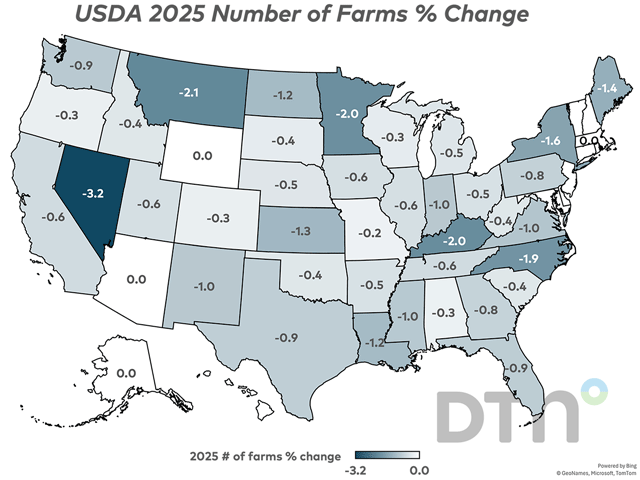DTN Oil
Oil Rallies after Houthis Continue Red Sea Attacks
WASHINGTON (DTN) -- Oil futures nearest delivery on the New York Mercantile Exchange and Brent crude on the Intercontinental Exchange advanced more than 2% on Thursday after Iran-aligned Houthi militants in Yemen claimed they had hit a U.S. warship in the Bab el-Mandeb Strait.
At settlement, March WTI futures advanced $2.27 to $77.36 bbl – the highest trade since Dec. 27, 2023. The international crude benchmark spiked by $2.86 bbl to $82.43 bbl, up by $2.39 in the afternoon session. February ULSD futures advanced $0.1136 to $2.7954 gallon, while front-month RBOB futures rallied $0.0549 to $2.2644 gallon.
Houthi rebels in Yemen said they had made a direct hit on an American warship this morning, forcing two commercial vessels to re-route from the Bab el-Mandeb Strait in the Red Sea, according to the Houthi spokesman. The U.S. military refuted the claim. Instead, U.S. Central Command said Houthis fired anti-ship ballistic missiles toward the U.S.-flagged, owned, and operated containership M/V Maersk Detroit, which was transiting the Gulf of Aden.
P[L1] D[0x0] M[300x250] OOP[F] ADUNIT[] T[]
The Houthis continue to attack commercial shipping vessels in the Red Sea, forcing a growing number of cargo ships and oil tankers to divert away from the Red Sea/Suez Canal route to the longer and more expensive route via the Cape of Good Hope in Africa.
Earlier this week, U.S. and U.K. military forces carried out a successful round of airstrikes against Houthi targets, hitting underground storage facilities and Houthi missile and surveillance capabilities. The strikes were, "Intended to disrupt and degrade the capabilities that the Houthis use to threaten global trade and the lives of innocent mariners," read the joint statement. Houthi rebels continue to assault commercial vessels passing through the Bab al-Mandab Strait, pushing up freight rates and forcing tankers to take a longer journey across the southern tip of Africa.
Domestically, about 150,000 bpd of North Dakota oil production is still shut-in by last week's frigid weather and heavy snowfall which has disrupted operations in Bakken basin oil fields. Before the disruption, North Dakota oil production averaged about 1.25 million bpd. The U.S. Energy Information Administration reported on Wednesday nationwide oil production fell by 1 million bpd to the lowest level since late 2022 at 12.3 million bpd.
The deep freeze also disrupted operations at Midwest and Gulf Coast refineries, with nationwide refinery throughput down by nearly 1.4 million bpd or 8.2% from the previous week to 15.2 million bpd. In the Gulf Coast, refinery crude throughout plummeted by 1.1 million bpd and Midwest runs fell 300,000 bpd. While market participants are yet to hear of any damage to refineries in these regions, some refiners in the Gulf Coast moved units into planned maintenance earlier than normal.
Further lending support to WTI futures, commercial crude oil supplies declined by a larger-than-expected 9.2 million bbl in the reviewed week to 420.7 million bbl, about 5% below the five-year average. The supersized draw was much larger than a 1.4 million bbl decline expected by analysts and a 6.678 million bbl drop reported by the American Petroleum Institute on Tuesday. Oil stored at the Cushing, Oklahoma hub, the delivery point for the WTI contract, fell 2 million bbl to 30.1 million bbl.
Liubov Georges can be reached at liubov.georges@dtn.com



